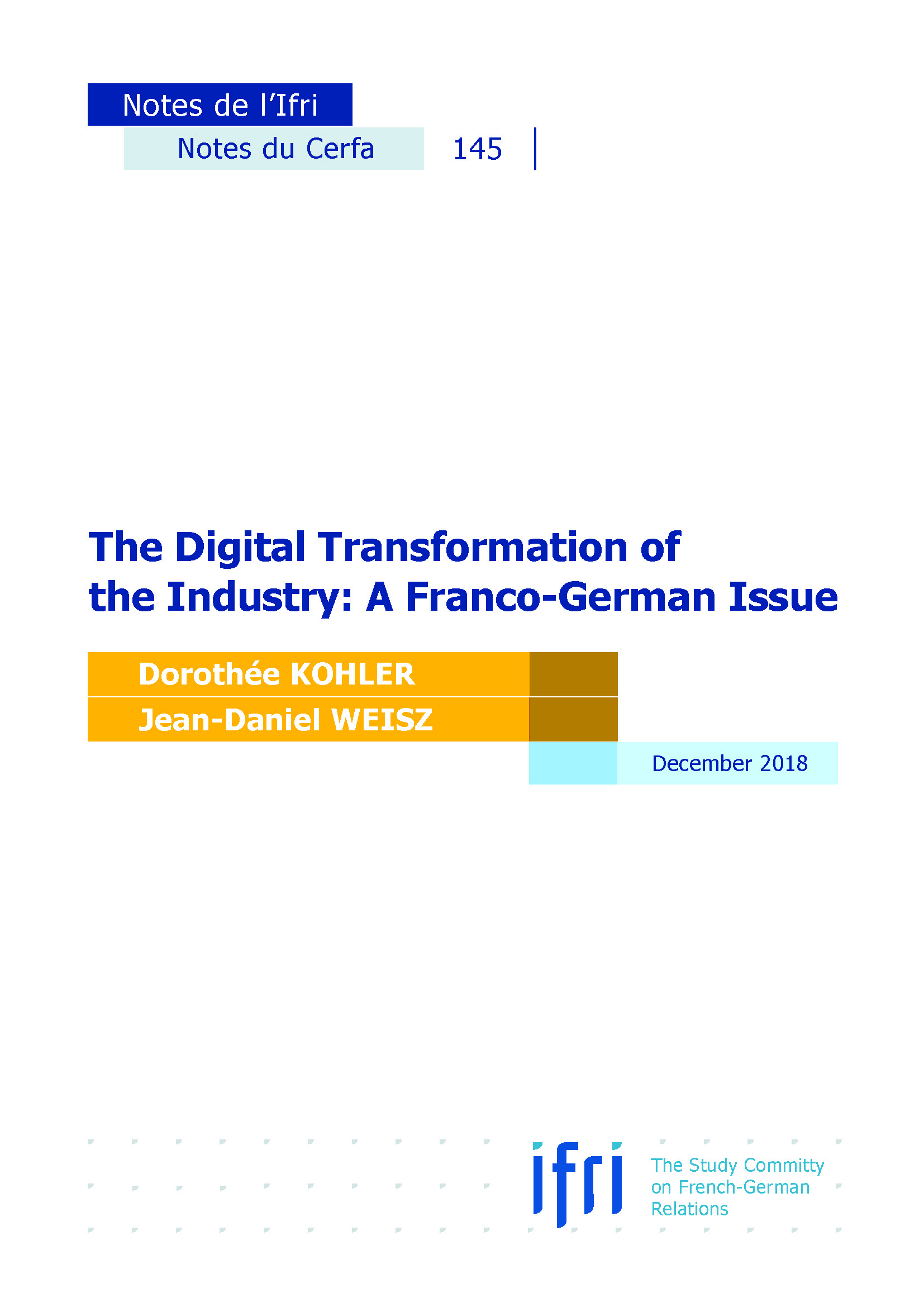Digital Transformation of the Industry: The Franco-German Challenge

The issue of the digital transformation of the industry provoked in France as in Germany the return of the state and the introduction of a subsidiary industrial policy. Feeling threatened in its industrial leadership, Germany mobilized its resources through industry 4.0 by building a vision around the concept of “cyber-physical system” before developing in each Land an accompanying offer. France has forged the concept of the industry of the future by following a logic of modernization of the production tool, reinforcing particularly the automation and building on the integration of new technological bricks.

Both countries now have an accompanying infrastructure in their respective territories. The stakes of the 4.0 industry for production systems, work organization, trades, skills, and employment are anticipated through dialogue and consultation processes.
But beyond the limits of each plant, the digitalization of industry will radically change the distribution of power within the branches and streams between suppliers, subcontractors and ICT providers. This issue culminates in the rise of industrial service platforms that will become an essential infrastructure for the economy. However, the scale effects of these platforms are largely captured by the infrastructure providers dominated by the GAFAM (Google, Apple, Facebook, Amazon, and Microsoft).
Facing these challenges, the Franco-German cooperation can intensify around three key axes: the regulation of platform players to build a competitive market, the development of the levers of relational competitiveness and common thinking and action on the future of work.
This publication is also available in French: Transformation numérique de l'industrie : l'enjeu franco-allemand.
Download the full analysis
This page contains only a summary of our work. If you would like to have access to all the information from our research on the subject, you can download the full version in PDF format.
Digital Transformation of the Industry: The Franco-German Challenge
Related centers and programs
Discover our other research centers and programsFind out more
Discover all our analysesMerz’ European Policy-making: The End of the ‘German Vote’?
Friedrich Merz’s European ambition is to turn Germany, long seen as hesitant into a leading actor within the European Union (EU). To that end, he has pledged to end the “German vote,” a phenomenon that epitomizes the paradox of a country both indispensable and frequently absent from European decision-making.

Securing critical raw material (CRM) value chains – a prerequisite for Europe’s technological resilience
At the heart of economic security, technological resilience is a backbone of the European Union’s (EU) competitiveness. The EU’s energy and digital transitions depend on critical raw materials (CRM).

Reconciling competitiveness and demographic change: a Franco-German imperative
France and Germany are facing parallel demographic shifts that could reshape the future of their economies and their social models. These shifts reflect broader European patterns but are magnified by the central role both nations play in EU governance and competitiveness.
Taking the Pulse: Does France's Political Crisis Weaken Europe's Geopolitical Hand?
While the EU tries to navigate a myriad international challenges, France is experiencing historic political disarray. What impact will instability in Paris have on Europe's geostrategic capacity?









